Social Work News
A New Sports Frontier
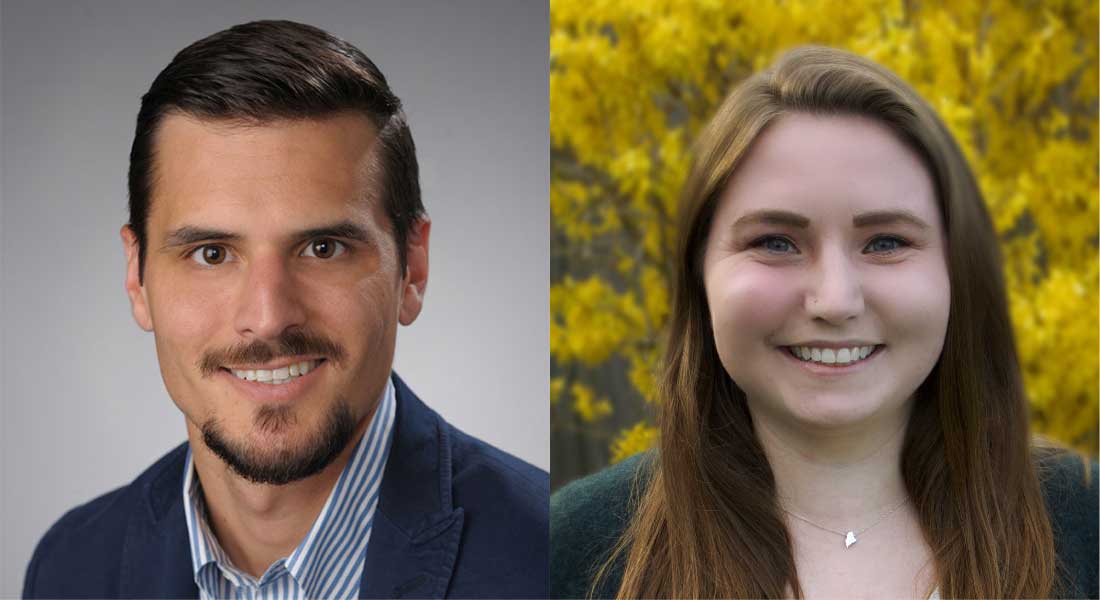
The idea of merging social work principles and practices with the sports industry is an emerging field, and Syracuse University is at the forefront with a new undergraduate course scheduled to start in fall 2024 in the School of Social Work at the Falk College of Sport and Human Dynamics.
Introduction to Sport Social Work is an elective course created by Associate Teaching Professor of Social Work Ken Marfilius in collaboration with Rachel Hamilton, a master’s of social work student who’s currently interning with the Syracuse Athletics Department. Marfilius will teach the course and Hamilton will be his research assistant, and here’s an excerpt from the course description:
Introduction to Sport Social Work: Applying a strength-based perspective to promote the health and wellbeing of student-athletes through a social justice framework. Through course readings, students will learn about sport social work theory, interprofessional collaboration, and understanding well-being issues of athletes. Course assignments will help students gain knowledge in applying strength-based perspectives within engagement, assessment, and interventions with athletes.
In recent years, more professional and collegiate sports teams have added mental health professionals to their staffs. But a professional with a social work degree provides teams with what Hamilton describes as a “macro and micro mix.”
“You’ve got an individual who can see something from the micro level of the individual who’s right in front of them, but also can zoom out and look at the societal trends, the trends within athletics, and the policies in place to evaluate what can be done to improve those policies and make it easier for athletes to feel supported in their mental health and well-being,” Hamilton says.
“With social workers, it’s that vast scale and scope of skill sets that makes the difference,” Hamilton adds. “It’s not just a clinical degree. It can be, if that’s what you want it to be, but as an advanced clinical student, I’m also having to take classes like social welfare policy that are more organizationally based and macro-based. With that knowledge, even if I do just want to work one-on-one with an individual, I still have the ability and the skill set to look at it from the macro perspective.”
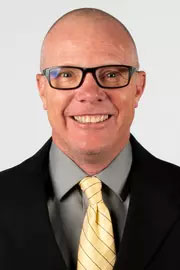
Jon Mitchell joined the Syracuse Athletics Department in the newly created position of senior associate athletics director, sports medicine, in October 2022. Mitchell oversees sports medicine, strength and conditioning, nutrition, and mental health, and he says he’s learning from Marfilius and Hamilton the many ways in which social work principles benefit student-athletes.
“It’s never been a part of our program before, and Rachel and Ken are educating me about utilizing it because we want to have as many tools in our toolbox as possible,” Mitchell says. “In college athletics, we are continually challenged to identify new ways to best serve our student-athletes, and this program has the potential to provide us with another resource to help serve the bigger purpose.”
‘Mental Health Linchpin’
Marfilius and Hamilton are both former athletes; Marfilius was a member of the rowing team at Syracuse University, and Hamilton was a member of a varsity cross-country team in Maine that won multiple high school state championships. Hamilton’s husband is former Syracuse football player Macky MacPherson, who went on to play for the NFL’s Buffalo Bills and coach Division I college football.
“We have many dinner conversations about the effects of college sports on student-athletes,” Hamilton says, smiling.
Hamilton, a student member of the Alliance for Social Workers in Sport and the Association for Applied Sport Psychology, is the first social work student to intern in the Athletics Department. Marfilius, an Air Force veteran whose primary research focus has been on military populations and veterans, had started building a course on social work and sports and was assigned as Hamilton’s field placement supervisor for her internship with athletics.
Together, they refined the course that Marfilius had started to build by incorporating that “macro” strength-based view that goes beyond general mental health support.
“It could be a student-athlete who comes from a challenging background with adverse childhood experiences and what we find, just like with the military, is that at 18 years old those experiences aren’t left behind,” Marfilius says. “They bring those with them–in addition to the pressure and the competition and the academics–and we look at both individual needs and systemic and structural needs of student-athletes and organizations.”
Marfilius says social workers can serve as a team’s “mental health linchpin,” helping directly with mental health-related issues or making referrals to other mental health professionals when appropriate. Mitchell says he views social workers as another potential source of education for student-athletes who don’t know what resources are available or have tried to cope privately with their problems because they didn’t want to seek help.
“We want to build trust by educating them and letting them know we have their best interests at heart,” Mitchell says. “If they can trust us when everything is going great, it increases the trust when things are not going as well.”
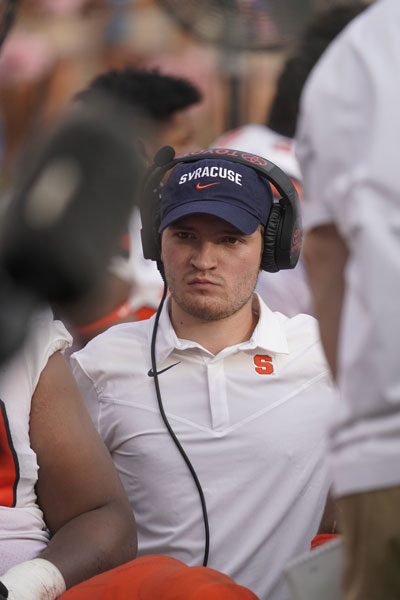
A Growing Demand
In addition to student-athletes, Marfilius says the new course is ideal for any student across campus who’s interested in sports administration, coaching, or working in some way with athletes from high school through professional. Falk College is a natural fit for the course because it houses the School of Social Work along with sports-related programs such as sport management, sport analytics, health, and exercise science, and starting in 2024, esports.
“I was interested in working with student-athletes, but there were not a lot of universities, if any, that have a social work program that’s so heavily integrated into a school that offered sport management and sport analytics and all those things,” Hamilton says. “I believe that’s why I was able to break into the athletics department for my internship hours.”
Hamilton says her internship started with her interest in working with student-athletes on their mental health challenges but has evolved to look at how student-athletes can be supported from a systemic level. With a guest speaker list that includes athletics administrators and coaches from inside and outside the university, Marfilius says the Sport Social Work course will provide students a similar opportunity to explore both sides.
“Just that exposure alone, and to have that understanding of what sport social work really is at a macro level, allows them to then look at their career trajectory in a different way,” Marfilius says. “But also, as a career choice, we have more folks who are entering this niche of a field.”
Indeed, the marriage of social work and sport may be the next frontier for the sports industry, which is always seeking a competitive edge. Hamilton says her long-range goal is creating a sport social work program at Syracuse that will meet what will eventually be a growing demand for social workers in the industry.
“Sports acts like a microcosm; there are leadership positions and administrative positions where you can utilize your social work skills to perform well,” Hamilton says. “There are support roles, mental health roles, and your traditional counseling roles, but also this skill set is invaluable to help navigate personality dynamics and group dynamics, and understanding the ways in which you can integrate and use those skills.”
Social Security In Jeopardy
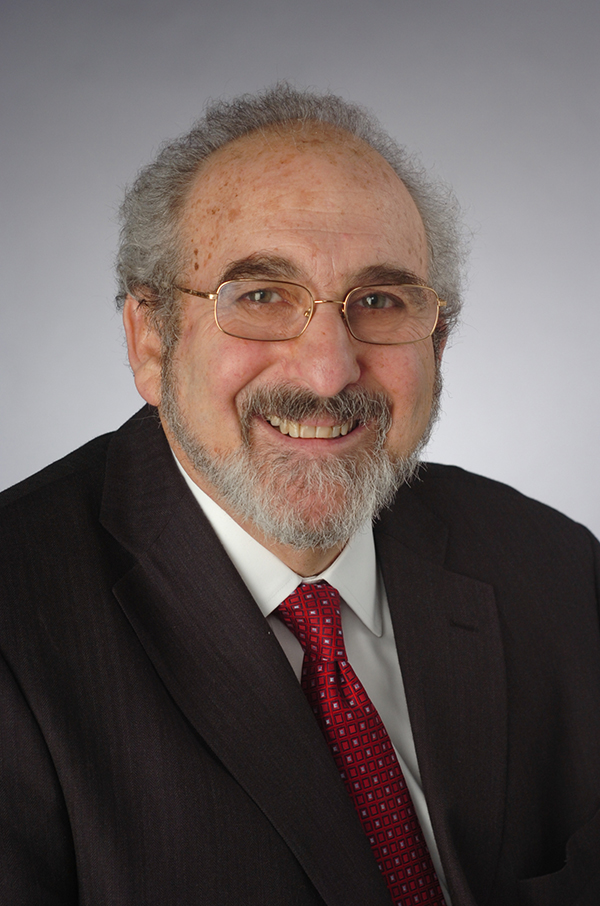
With membership representing 70 percent of House Republicans, the House Republican Study Committee (RSC) recently unveiled a plan to make drastic changes to Social Security and Medicare, including raising the full retirement age from 67 to 69 by 2033 for those born in 1960 or later and then to 70 and beyond by indexing the retirement age to increases in life expectancy.
When fully phased in, raising the retirement age to 69 would result in a 13- to 14-percent reduction in Social Security benefits for all workers regardless of when they first accept retired worker benefits.
Eric Kingson, a professor of social work at Syracuse University’s Falk College of Sport and Human Dynamics, is a founding co-director and current board chair of Social Security Works, the organization that launched and staffs the Strengthen Social Security Coalition. The RSC is also proposing cuts to Medicare and Medicaid, and Kingson says these reductions would be devastating to most Americans.
“This proposal would essentially privatize Medicare, reducing protections and increasing the financial risks of older persons and people with disabilities,” Kingson says. “The waiting period for new disability insurance beneficiaries would be doubled to five years, Medicaid benefits and eligibility will be slashed, and new provisions allowing Medicare to negotiate lower pharmaceutical prices will be eliminated.
“And ironically,” Kingson says, “the RSC’s plan would also extend the Trump administration’s 2017 tax cuts–a change that the Congressional Budget Office estimates would add $3.5 trillion dollars to the federal deficit from 2025 to 2034.”
Kingson is well-positioned to speak to the politics surrounding Social Security’s evolution, financing, and expansion of benefit protections. He served as policy advisor to two presidential commissions: the 1982-83 National Commission on Social Security Reform, and the 1994 Bipartisan Commission on Entitlement and Tax Reform. An active volunteer on the Obama campaign’s Retirement Security Policy Advisory Committee starting in July 2007, Kingson later served on the advisory committee to the Social Security Administration’s transition team.
Kingson is the author of several books and articles addressing the political and economic consequences of aging, retirement, and Social Security, including “Social Security Works for Everyone! Protecting and Expanding the Insurance Americans Love and Count On.” In that book co- authored with Nancy J. Altman, president of Social Security Works, Kingson and Altman make the case for an all-generations expansion of Social Security for Americans of all ages, races, genders, and ethnicities.
Here, Kingson answers three questions about the several prominent proposals:
Q: After the debt ceiling agreement, House Speaker Kevin McCarthy floated the idea of forming a bipartisan commission to study and propose cuts to Social Security, Medicare, and Medicaid. What do you think of this method to deal with the nation’s deficits and debt?
A: History tells us that these types of commissions fail. It has been tried four or five times during the past 25 years and not one reached the consensus necessary to move proposals through Congress. Even so, the proposal should be taken seriously because it’s an eye into the future of what Republicans will try to do if they capture the House, Senate, and presidency in the 2024 election.
Q: Why does Speaker McCarthy want to go this route?
A: A commission with fast-track authority is a call to make large cuts to Social Security, Medicare, and Medicaid outside the view of the public. It might protect politicians from taking responsibility for their votes, especially those who vote in favor of cutting these popular programs. (“I really didn’t have a choice, it was an ‘up or down’ vote.”)
But a commission with fast-track authority doesn’t protect the tens of millions of people–young, old, and in-between–whose economic and health security would be badly compromised. In fact, roughly two-thirds of young and middle-aged working Americans are facing personal retirement income crises.
If you think Social Security is too generous–retired workers’ benefits averaging about $1,800 a month in 2023 and even less for disabled workers, surviving children, and spouses–then a fast-track commission might be the way to go. But if not, we should be talking about expanding Social Security and health security protections.
Q: What is the best way for this issue to be addressed?
A: Consideration of changes, especially large ones, should be done through the normal House and Senate committee processes; that is, fully debated and allow for amendments if brought to the floor of the House and Senate. The various proposals that would be under consideration are too important to shut out public comment and bypass the normal order.
Beyond the Battlefield
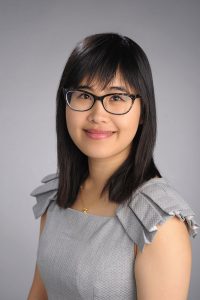
Since 2014, June has been designated by the federal government as Post-Traumatic Stress Disorder (PTSD) Awareness Month, bringing attention to the serious mental health condition some individuals develop after experiencing or witnessing a life-threatening or traumatic event.
While PTSD is often discussed as it relates to the veteran population, data from the National Center for PTSD show that veterans are only slightly more likely to experience PTSD than the general population. Around 7% of veterans and 6% of all adults will have PTSD at some point in their lives and approximately 12 million adults suffer from it in any given year.
To shed further light on this important topic, SU News interviewed Xiafei Wang, an assistant professor of social work in Falk College. Wang studies the transmission of intergenerational trauma, how trauma-affected individuals and families can develop resiliency, and how such factors as race, gender, disability, and military service impact trauma and resilience. Wang shares her insights and research on these topics and more in this Q&A.
New Program Connects Law and Social Work Disciplines to Assist Veterans
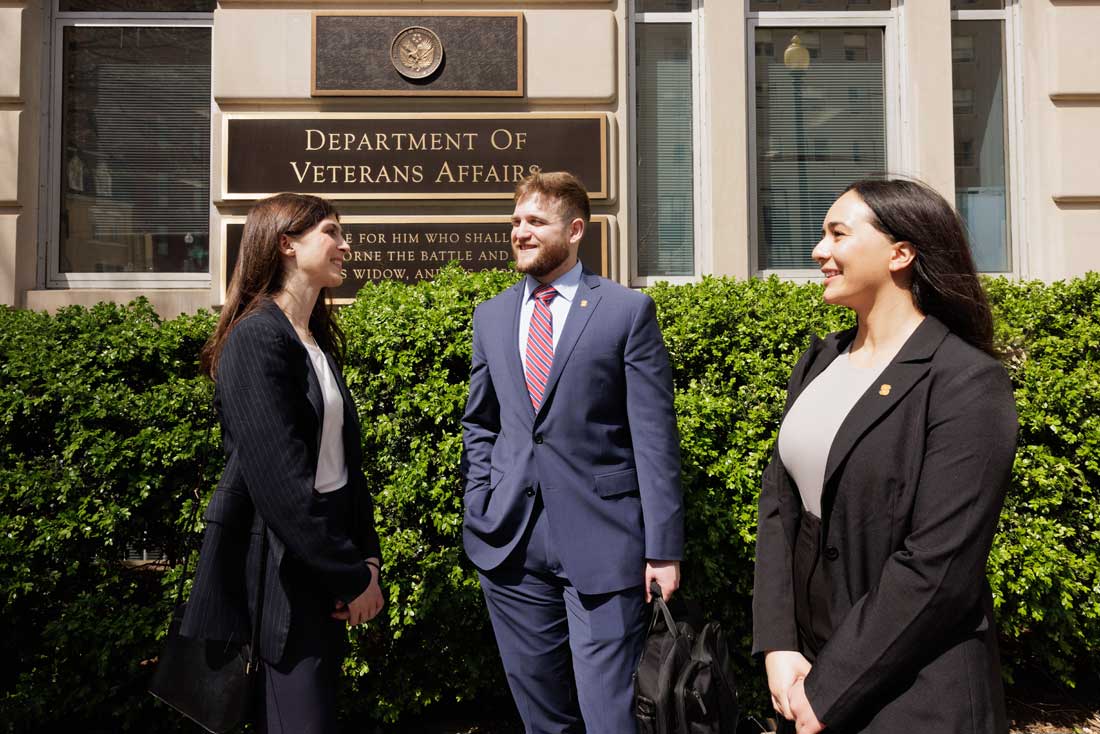
Veterans often face a unique set of legal issues related to their service that require specialized knowledge and understanding to resolve. Those issues can become increasingly complex as veterans age, further intersecting with various aspects of physical, social and emotional well-being. According to the U.S. Census Bureau, more than 80% of U.S. military veterans are over the age of 55.
At Syracuse University, the College of Law and the Falk College of Sport and Human Dynamics have formed a partnership to help veterans, and especially aging veterans, access the legal services they need and obtain the benefits they have earned and deserve.
Staffed by attorneys from the College of Law’s Betty and Michael D. Wohl Veterans Legal Clinic, law students and graduate social work students, the Legal-Social Work Partnership program provides free, high-quality legal services for veterans, such as assistance with disability claims and discharge upgrades, benefits counseling and more. The partnership also works to educate veterans about their rights and how to navigate the legal system.
The partnership operates under the College of Law’s Office of Clinical Education, where Syracuse law students apply doctrinal law while representing clients under the supervision of faculty-mentors.
The Legal-Social Work Partnership places an emphasis on addressing the social determinants of health. By assisting veterans with housing, employment, aging and other issues, the Legal-Social Work Partnership can help reduce veteran homelessness and suicide rates and improve the lives of veterans and military families.
Elizabeth Kubala, teaching professor in the College of Law, is the executive director of the Betty and Michael D. Wohl Veterans Legal Clinic. “The veterans we assist often have needs and challenges outside the scope of our legal representation,” she says. “Bringing a social work perspective into our legal clinic will not only result in better overall outcomes for our veteran clients, but also a better understanding by the students of how to best serve veterans.”
As Syracuse law students and social work students learn how their respective disciplines interact in real-world practice settings, this program is building a stronger legal system that can address the holistic needs of clients.
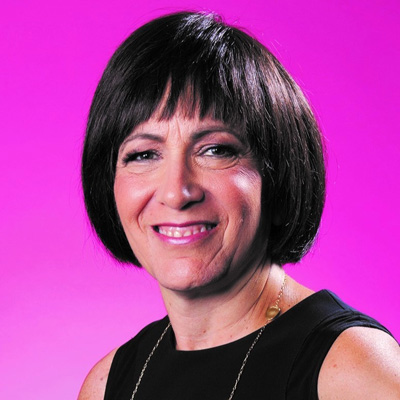
While there are law firms that employ social workers in their practices, it is still quite uncommon. Syracuse University alumna Wendy Goidel ’84, Esq., the founding and managing member of Goidel Law Group PLLC and its Estate Planning & Elder Law Center, is one of the few who is leading the way. Goidel is the founder and co-developer of Concierge Care Coordination, a holistic practice model, which merges geriatric social work with legal planning.
“While the interdisciplinary model in an elder law context is natural and essential, it should be replicated and embraced in other practice areas—such as matrimonial, family, medical malpractice, personal injury and criminal—where legal problems are intertwined with social, medical and emotional issues. There is no doubt that clients and their family members receive far superior services, strategies and solutions when attorneys and social workers advocate and collaborate,” says Goidel.
Goidel established the Goidel Law Group Internship Fund to support social work graduate students interested in working at the intersection of law and social work, particularly with older adults, through the Legal-Social Work Partnership program at Syracuse University. Students will receive $5,000 stipends for their internship year while working within the Legal-Social Work Partnership.
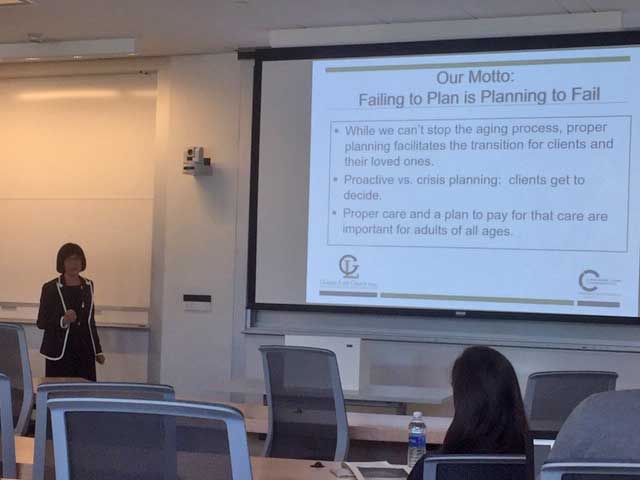
“Collaborations between law students and social work students are essential in addressing the legal problems impacting the health and well-being of our nation’s veterans,” says Ken Marfilius, Falk College assistant dean for online and distance education and associate teaching professor in the Falk College School of Social Work. “Social work students will play a key role in connecting veterans to community resources beyond those typically addressed through legal representation, having a direct and immediate impact on veterans and their families.”
“In addition to addressing the critical needs of veterans, this project illuminates the needs of one of the fastest growing populations on our planet, and that is of aging individuals,” says Carrie Smith, chair of the Falk College School of Social Work. “Collaborative work among an increasing number of experts at the intersection of law and social work will be essential in addressing the myriad needs and concerns of this population.
“We are very appreciative of the pioneering work being led by Wendy Goidel in addressing these aims,” she adds.
Through the Goidel Law Group Internship Fund, two social work graduate students at Syracuse University will be selected annually for the Goidel Law Group Internship Fund. Students do not need to be enrolled in Syracuse University’s J.D./master of social work dual degree program to be selected. Interested students must apply online by June 30, 2023, for the 2023-24 academic year.
For more information about the Legal-Social Work Partnership program or the Goidel Law Group Internship Fund, please contact Elizabeth Kubala, 315. 443.8420 or egkubala@syr.edu, or Kenneth Marfilius, 315.443.5586 or kjmarfil@syr.edu.
Congratulations Class of 2023

Along with Dean Murphy, the entire Falk College community of students, faculty, staff, alumni, community partners and friends, congratulates to the Class of 2023! Falk College’s seven academic departments and schools represented 529 degree candidates, including:
- 321 undergraduates;
- 155 masters candidates;
- 50 students earning certificates of advanced study, and;
- 3 Ph.D. students.
Through the month of May, departments across Falk College honored student achievements and celebrated the graduating Class of 2023, which are detailed on individual department websites.
Falk College Convocation was held Saturday, May 13 at Lally Athletic Complex. Falk College Convocation, other college convocations, and the May 14 Syracuse University Commencement ceremony, were recorded and are available to view on the Syracuse University commencement website and is also included below.
Falk College Convocation | Saturday, May 13 | 5:30 p.m. ET
Syracuse University Commencement | Sunday, May 14 | 9:30 a.m. ET
Syracuse University’s Highest Honor
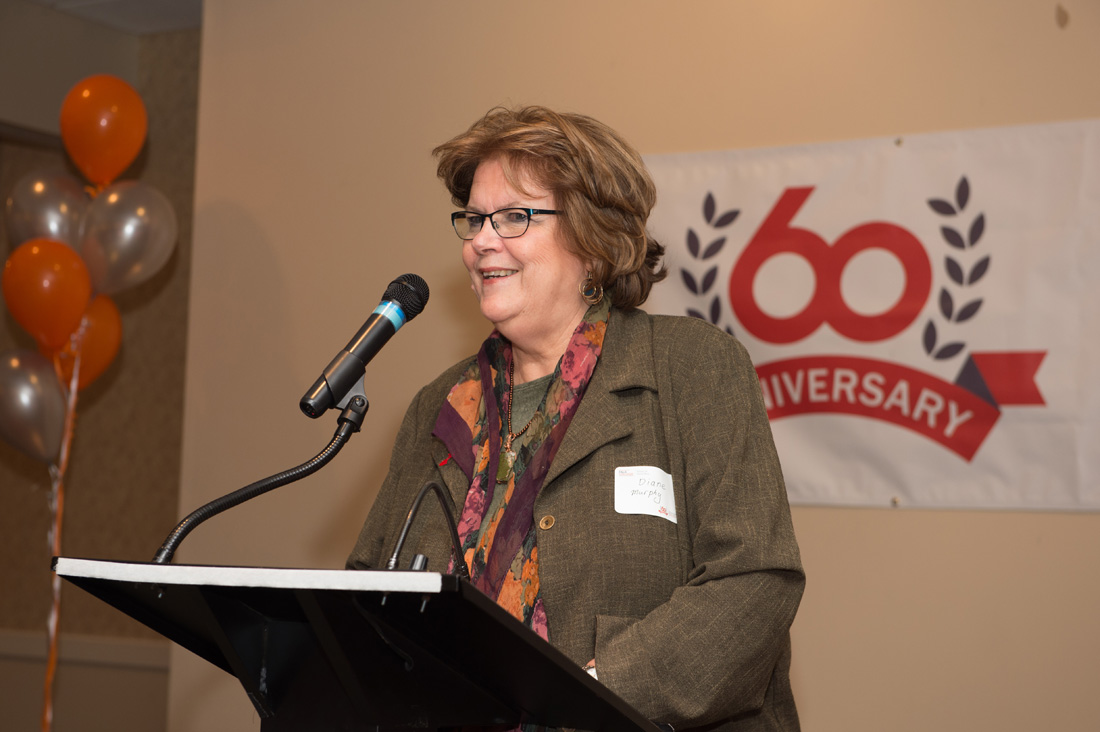
Diane Lyden Murphy, dean of the Falk College of Sport and Human Dynamics, received Syracuse University’s highest honor–the Chancellor’s Medal–at the One University Awards Ceremony April 21 at Hendricks Chapel.
The Chancellor’s Medal is awarded to individuals in honor of their trailblazing and extraordinary contributions to the University, to an academic body of knowledge, or to society. Dean Murphy, who was appointed Dean of the College of Human Services and Health Professions (now Falk) in May 2005, checks all three boxes.
“This medal is given for the very things Diane has always done here: extraordinary contributions to the University, to the community, to academic knowledge,” Chancellor Kent Syverud said before presenting the Chancellor’s Medal to Dean Murphy. “She’s done those things, but she’s also done one thing that’s even rarer and worth celebrating and I can say this from experience, she has consistently and faithfully had the courage to speak up.
“She’s had the courage to speak up, including to chancellors, when things are not right, when they could be better, and even more rare is that after speaking up she has the integrity to roll up her sleeves and actually work to make them better,” Chancellor Syverud added.
Dean Murphy was one of several 2022-23 award recipients who were honored at the April 21 ceremony. Watch the video of the Chancellor’s Medal presentation here:
Dean Murphy received four degrees at the University and joined the faculty in the School of Social Work in 1978. Prior to her appointment at Falk, Dean Murphy served 17 years as director of the Women’s Studies program in the College of Arts and Sciences.
Dean Murphy’s many contributions to the University include co-authoring the University’s sexual harassment policy; initiating studies of gender pay equity; developing adoption and domestic partner benefits; and creating a family-friendly environment for students, faculty, and staff.
Chancellor Syverud started his remarks by reading a news release from January 1973 about Dean Murphy’s appointment as a personnel intern in the Office of Student Affairs who would “specialize in the problem of married students.” She served as a liaison between married students and the administration and from that work arose the first childcare center on campus.
“There have been a lot of initiatives in the last 50 years at Syracuse University to help people and populations in our community,” Chancellor Syverud said. “There have been precious few where Diane Lyden Murphy has not been present and accounted for in support of doing the hard work and listening and doing the problem-solving and speaking up to make things better.
“We talk about diversity, equity, inclusion, accessibility, and support for survivors, Diane was there often before most of the world had developed the vocabulary to describe the problem and the opportunity,” Chancellor Syverud added. “Going back to that first press release, Diane never regarded married students as a problem, she never regarded these things as problems, she regarded them as opportunities. And boy, she’s made an impact on this University! I can’t imagine what this place would be like today without her work, but I’m certain it would be a less accomplished and a colder and less just and less human place.”
The Chancellor’s Medal is the latest in an extensive list of awards Dean Murphy has received while at the University, including the Excellence in Graduate Education Award from the Graduate School, the Francis McMillan Parks Women of Influence Award, and a Chancellor’s Citation. In 2005, the Women’s Studies Program established the Diane Lyden Murphy Women’s Studies Activism Award in her honor.
‘Lineage of Advocacy’
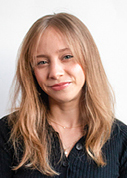
Ten Syracuse University students/alumni have been named as 2023 recipients of awards through the Fulbright U.S. Student Program.
The program funds a range of awards that include English teaching assistantships (ETA) and study/research grants in over 140 countries. All of this year’s Syracuse recipients received teaching assistantships.
One of these recipients is a Falk College student, Sarah Bennett ’20, G’22, is a philosophy and psychology alumna in the College of Arts and Sciences and master’s of social work alumna in the Falk College.
Bennett will teach English at a Polish university and plans to support refugee aid initiatives. She also plans to engage with creative writing communities. “I know firsthand that poetry can offer an affirming space for cultural expression and exchange,” she says. “In Poland, I hope to join or create a space for writers to come together and share their work.”
Her time in Poland will also be personal. This year, she uncovered an autobiography written by her great-grandfather, which chronicled his life as a teacher, scholar and political activist with the General Jewish Labor Bund in his hometown of Łódź. “There has been a long lineage in my family of writing, teaching and advocacy,” she says. “I hope to follow this familiar pull as a Fulbright ETA in Poland while connecting with a culture and history I am eager to know better.”
The Center for Fellowship and Scholarship Advising (CFSA) supports current undergraduates, graduate students and alumni in Fulbright applications. Students interested in applying to the Fulbright program should contact CFSA at 315.443.2759 or cfsa@syr.edu.
Interested students should open an application on the Fulbright portal by June 1. The campus deadline for the 2023-24 application cycle is Sept. 12.
Class of 2023 Social Work Awards
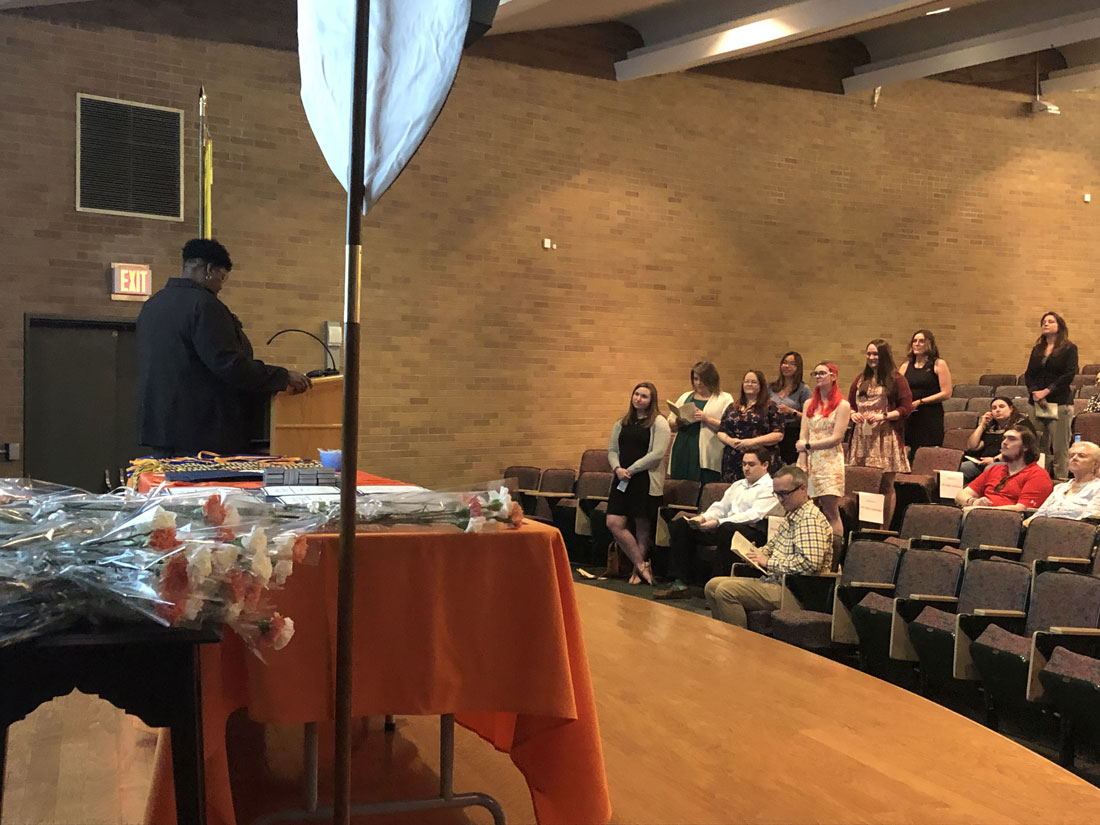
The School of Social Work in Falk College would like to recognize and congratulate its Class of 2023 undergraduate and graduate award winners! Here’s a list of the winners, a description of the award, and comments about the awardees from Social Work faculty:
Keith Alford Diversity and Inclusion Award – Khin Aung and Ashley Homer
The Keith Anthony Alford Diversity and Inclusion award is named in honor of Dr. Keith Alford, formerly the Syracuse University Chief Diversity and Inclusion Officer (2018-2021), M.S.W. Program Director (2016-2018), B.S.S.W. Program Director (2008-2012), and Director of the School of Social Work (2016-2019).
Khin Aung (undergraduate)
“Khin came from a Thai refugee camp. Her native country is Myanmar (Burma), and she now lives with her family in Syracuse. Khin is doing her social work internship at Interfaith Works to gain work experience and serve the immigrant and refugee populations. Her goal is to make the best of her education and use the skills she has acquired to best serve the immigrant and refugee populations as a social worker.”
Ashley Homer (graduate)
“Ashley, a native of Syracuse, is focusing on clinical practice. Ashley currently works as a social work intern at Corcoran High School in Syracuse, where she attended. Ashley intends to work in a position that will enable her to continue supporting youth who face social challenges and serve as a liaison between this population and community resources.”
Elizabeth Brown Thoreck Undergraduate Student Achievement Award – Chevon Janczuk
Awarded to a non-traditional aged undergraduate student who is in good academic standing in the academic arena and field placement setting.
“Chevon is currently employed with Liberty Resources in its developmental disabilities department as a direct support professional who provides community habilitation. She is also employed with Community Action Partnership in Canastota, New York, as a housing facilitator who supports the homeless population. Her interests in the social work field are within the criminal justice system and military population. Chevon will complete her M.S.W. at Syracuse. She will intern at the Veteran Justice Outreach program in Auburn, New York, where they provide services to veterans within, and recently released from, the criminal justice system.”
Bachelor of Science in Social Work Award – Alexandra Vroman
Awarded to a School of Social Work graduating senior in good academic standing who is involved in social work activities, serves the community, and makes meaningful contributions to Syracuse University.
“Alexandra has loved spending her senior year interning at Webster Elementary School and discovering her passion for school social work. After graduating with her B.S.W. and bachelor’s in psychology, she will attend Syracuse University’s Advanced Standing M.S.W. program and intern at SUNY Upstate’s Child and Adolescent Outpatient Psychiatry Clinic. She is excited to continue her social work education and work toward clinical licensure.”
Scholastic Excellence Award, Undergraduate – Emily Clapper
Awarded to the student with the highest cumulative GPA among graduating seniors.
“Emily is a current intern at Toomey Residential and Community Services, where she spends most of her time engaging with clients in the Children’s Community Residence program, a residential facility for children and adolescents with significant mental and behavioral health diagnoses. Upon graduation, Emily will continue her education at the Boston College School of Social Work in their Advanced Standing Master of Social Work program with a concentration in children, youth, and families.”
Catherine Mary Esposito Achievement Award – Emily Schaefer and Kallie Minarik
The Catherine Mary Esposito award is presented to outstanding undergraduate and graduate students who have demonstrated a commitment to clients with developmental disabilities and are in good academic standing, but more importantly have had success working with people with developmental disabilities.
Emily Schaefer (undergraduate)
“Emily is a social work intern at the Jowonio School, an inclusive preschool serving children of all needs. Upon graduation, Emily will continue her education at Fordham Graduate School of Social Service in their Advanced Standing Master of Social Work program. Emily is extremely passionate about creating a more inclusive environment for all children.”
Kallie Minarik (graduate)
“Kallie took part in the behavioral health department for her field placement. She worked with clients individually, with families, and with groups. Kallie currently wants to work with clients and families between infant mental health and veterinary social work. She states that although this will be working with ‘two completely different areas, that is the beauty of social work.’”
Rhonda B Cohen Prize in Gerontology Award – Jacob Handanyan and Peter Hernandez
The Rhonda B. Cohen Prize in Gerontology is named in honor of Rhonda Cohen, who graduated from the M.S.W. program in 1983 and passed away at a young age. She was an advocate for the elderly. The award criteria include cumulative GPA, community service, and an interest in working with older adults.
Jacob Handanyan (undergraduate)
“Jacob is currently completing his undergraduate field placement at Syracuse Jewish Family Services, working with the aging population and differently abled individuals, and conducting group and individual visits. Jake intends to continue his education at Syracuse University to complete his master’s in social work.”
Peter Hernandez (graduate)
“Peter’s first placement was working with the elderly at an assisted living home, and his second placement was working with children with disabilities. He has worked with high-needs children and on suicide prevention with veterans. Peter is currently the Social Services Director for a nursing and rehabilitation home, and his future plans involve pursuing his L.C.S.W. and providing services to adults.”
Virginia Insley Award – Andrew Carroll (graduate)
Awarded to an outstanding Social Work M.S.W. Health Care Concentration student who is interested in maternal and child health.
“Andrew is currently interning at the Upstate Child and Adolescent Psychiatry Clinic. This pertains to his interest and goals and has been very helpful in cultivating an enriching learning environment that he intends to use in clinical practice going forward. Andrew has found this to be an invaluable experience and plans to apply the plethora of knowledge he has gained to his future work, always striving to identify and implement unique treatment modalities to best meet the unique needs of his clients.”
Carrie Jefferson Smith Social Justice Award – Kathryn Scully (graduate)
Awarded to a student who has demonstrated a commitment to social justice, particularly in improving the lives of victims impacted by the continuum of domestic violence.
“Kathryn is currently interning at Elmcrest Family Transitions (EFT), a program that is a specialized sexual abuse service. Kathryn works with youth in the community who have a history of problematic sexual behaviors and those who have been victims themselves. She recently interviewed for a full-time position at EFT, where she hopes to begin working after graduation.”
Mary Pat Cotter Remembrance Award – Malika Nobles (second-year graduate student)
Awarded to a School of Social Work graduate student for contributions to substance abuse and HIV/AIDS.
“Malika works at ACR Health, where she has held many different positions working with high-risk individuals with infectious diseases such as HIV/HCV. She currently interns at Credo Community Center in Watertown, New York, where they provide outpatient treatment services for individuals struggling with addiction. Credo’s mission, values, and philosophy on client-centered care spoke volumes to Malika and resonates with the type of social worker she hopes to become. Malika would like to one day open her own women’s safe haven, a nonprofit organization that epitomizes the lessons and experiences that both ACR Health and Credo Community Center have provided.”
Kenneth J. Marfilius Student Veteran Award – Jazmin C. Avila and Robert Ryan
The Kenneth J. Marfilius Student Veteran Award is presented to a graduate student in good academic standing who is a military veteran. The award is based on grade-point average, community involvement, and contributions to Syracuse University contributions.
Jazmin C. Avila (undergraduate)
“Jazmin completed her field placement at a therapeutic crisis response program that worked with youth who did not meet the criteria for inpatient but needed additional support navigating anxiety, depression, and other mental health concerns. Jazmin is an U.S. Army veteran hoping to work with adolescents who have experienced trauma, more specifically youth that are victims/survivors of sex trafficking.”
Robert Ryan (graduate)
“Robert is a U.S. Coast Guard Auxiliarist and U.S. Marine Corps veteran, and he is completing his M.S.W. internship at Confidential Help for Alcohol and Drugs (C.H.A.D.). He is president of Social Workers United, a member of the Student Veterans Organization, and a member of the University’s Diversity Committee. Robert is employed as the Cayuga County Democratic Deputy Elections Commissioner, and has future goals of becoming an L.C.S.W., earning a doctorate, and working in higher education.”
Interested in a career in social work? Visit the School of Social Work to learn more about its academic programs, experiential learning, and career opportunities.
‘Uplifting People’
In her distinguished career as a social worker, Jane Rockberger Bloom devoted her life to improving the lives of refugees who settled in the U.S.
Bloom, a 1969 Syracuse University alumna and engaged Falk College Advisory Board member, died in March 2022. But her mission to help others endures at the Falk College of Sport and Human Dynamics with the Jane Rockberger Bloom Social Scholarship in Refugee/Migration Services.
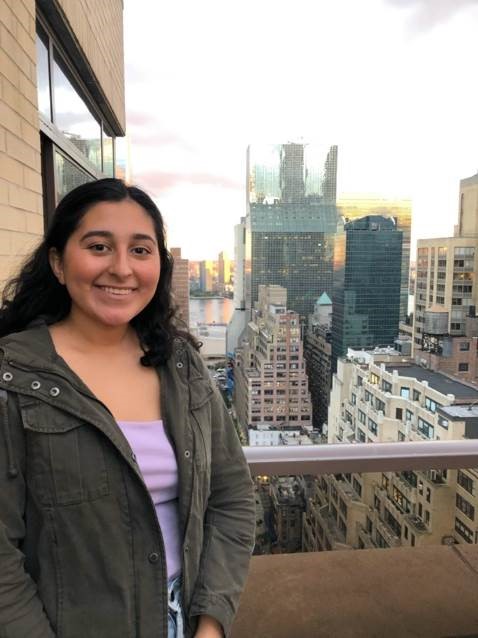
The 2022-23 recipient of the award was School of Social Work graduate student Salma Silvas, who received her bachelor’s degree in social work in 2020 from St. Edward’s University in Austin, Texas, before joining Syracuse University’s master’s program.
“As it was nearing time to apply to colleges and pick a major, I knew I had to help dismantle oppressive systems that hold people back,” Silvas says. “I found social work was the perfect match for me with the ability to work with different populations while uplifting people and gaining transferable skills.”
To learn more about Silvas, we asked about her hobbies, academic interests, and career aspirations. Here’s that conversation:
Q: Tell us about yourself–what do you like to do in your free time?
A: Being from a coastal community, I enjoy spending my time at the beach, walking along the coastline, and reading. Now that I attend school in Syracuse, I have had to adjust my hobbies slightly. Outside of academics, I enjoy hiking, admiring waterfalls, and the snow–I had only seen it a few times prior to moving here. I have pushed myself to move to a place where I did not know anyone, or anything, which has allowed me to gain more confidence in every aspect of my life.
Q: Why did you choose social work as a profession?
A: My grandfather made the journey from Mexico to this country decades ago in search of better opportunities for his family. Growing up in a Mexican American household and community, I saw first-hand how systems can sometimes work against communities of color. My parents instilled in me that going to school, having food, having a home, and having my basic needs met were all privileges that many people did not have.
Q: What are your academic interests and aspirations?
A: While obtaining my B.S.W., I fell in love with the aging population, which led me to my senior year internship at a skilled nursing facility. I am currently interning at Upstate Medical University (in Syracuse), previously with the palliative care unit and currently with inpatient psychiatric unit, where I find many intersections in aging, death, and dying. I strongly believe that all people, no matter their immigration or financial status, should have dignity when dying.
The aging and dying community are sometimes thrown to the side and viewed as a lost cause, but this is far from the truth. My academic interests lie in learning more about the aging, death, and dying population and how I can further engage and educate Latinx communities on the importance of preventative care and advanced care planning.
Q: What would like to say to the family of your scholarship sponsor, the late Jane Rockberger Bloom?
A: Navigating the post-undergraduate world can be difficult and confusing when there are a limited number of people in your community with graduate school experience. Being a first-generation college graduate, and a first-generation graduate student, fills me with immense pride.
I am so grateful that a portion of my financial burden for this academic year has been alleviated. I cannot accurately express my gratitude for this opportunity to continue to make my family and community proud. Thank you so much, and I will forever be grateful for your sponsorship!
Interested in a career in social work? Visit the School of Social Work webpage to learn more about its academic programs, experiential learning, and career opportunities. Visit the Awards and Scholarships webpage to learn more about the wide range of opportunities and awards that are available to Falk College students.
Those who would like to make a gift to the Jane Rockberger Bloom Social Scholarship in Refugee/Migration Services can make a secure gift online. To make a gift by check, please make it out to Syracuse University and mail to Falk College Advancement, 427 White Hall, Syracuse, NY 13244. If you have any questions, please contact David Salanger, Assistant Dean for Advancement and External Relations, at 315.443.4588 or dasalang@syr.edu, or Megan Myers, Director of Development, at 315.443.1817 or mmyers01@syr.edu.
Talking to Children

Tracey Marchese is a professor practice in the School of Social Work in Syracuse University’s Falk College. Her research specialties include trauma, PTSD, mental health and mind-body wellness.
She answers three questions below with advice on best ways to discuss traumatic events. She is available for additional questions and interviews.
Q: How should I approach the topic of a school shooting with my child or teen?
A: Children/adolescents may react differently to the news of a school shooting depending upon their age and previous exposure to news of school shootings. Younger children (those younger than about the age of 7) may not have as much awareness or understanding about the impact of a school shooting. Children that are about the age of 8 and older would benefit from having a discussion about it, especially if there is large-scale news coverage and the child will most likely hear about it in school. Adolescents may be more likely to want to talk about it more in depth.
You may simply ask the child if they’ve heard about it and take it from there. After initiating the discussion, adults should take on more of a listening role to see what the child needs instead of talking to the child about what they think the child needs to know. Addressing the needs that the child expresses – whether for more information, comfort, safety planning – will lead to more positive outcomes. Telling the child what the adults think they need to know can actually cause the child more anxiety.
Q: What should parents and caregivers keep in mind in how they talk about the event?
A: Adults need to be mindful about how they address their children’s safety concerns. We do not want to negate the child’s fears – telling the child that they shouldn’t feel scared will only serve to shut down communication. It is not appropriate to tell the child that they will never experience a school shooting because we do not know that. At the same time, we want to help them to feel safe enough so that they do not become fearful of going to school. It is okay to share that you may be feeling scared, too, and that you can work together on creating a plan to feel safer. Taking a proactive stance will help the child feel more in control.
Q: Do you have any other advice to offer?
A: One of the most important things to address before speaking to children is for the adults to first address their own feelings/fears/concerns. If the adult is visibly anxious or even just feeling uneasy, the child will pick up on that, regardless of what the adult tells them. Concerns can be addressed in a number of ways: getting support from friends and family, becoming educated about their local school district’s safety protocols, engaging in relaxation techniques to help regulate their feelings, and/or seeking help from a mental health professional if they are having ongoing trouble managing their feelings/concerns.
It is also important to check in with children to see how they are doing and to keep an eye out for any changes in behavior that may indicate that they are struggling. If a child is struggling, parents can reach out to the child’s guidance counselor, pediatrician, or a mental health professional for assistance.
Page 8 of 31
